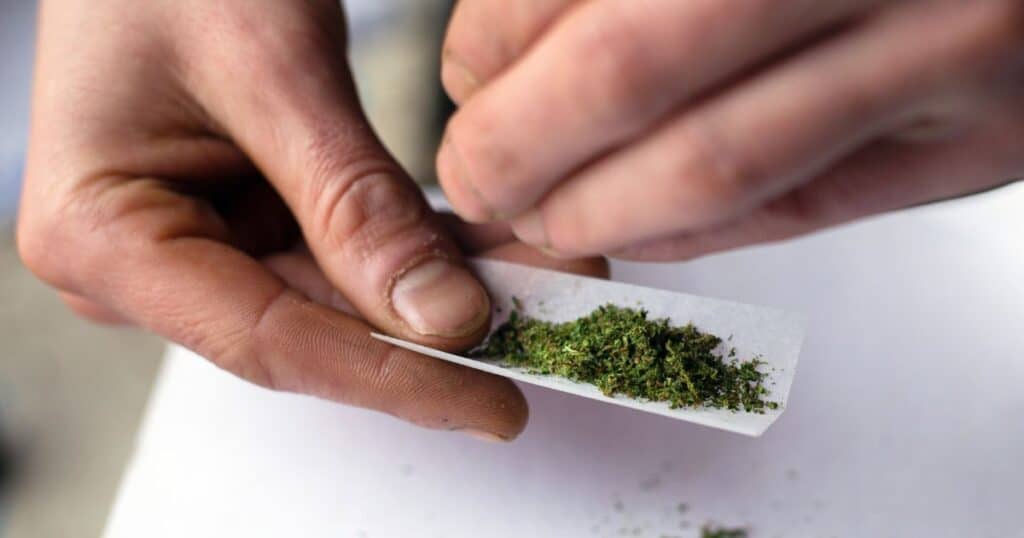New Jersey – In the landscape of cannabis legality, New Jersey has found itself in a unique clash that could redefine the boundaries between state policy and federal mandates. The ongoing legal dispute in Jersey City about police officers’ rights to use cannabis off-duty sheds light on law enforcement and personal freedom in the era of legalization.
The lawsuit centers around whether the federal stance on cannabis – classifying it as a Schedule I substance – should govern the off-duty activities of officers in a state where cannabis has been legalized for recreational use.
Jersey City is at the epicenter of this standoff, with both local and state officials grappling over the precedent that the final ruling could set any day, as reported by the New Jersey Monitor.
Legal Battle For New Jersey Cannabis
Just before the recreational cannabis industry in New Jersey launched in April 2022, New Jersey’s Attorney General Matt Platkin provided guidance to law enforcement officials. He stated that under state law called the Cannabis Regulatory, Enforcement Assistance, and Marketplace Modernization Act (CREAMMA), officers could not be dismissed for off-duty cannabis consumption.
Jersey City Mayor Steve Fulop promptly opposed Platkin’s advice. So, the city took steps to terminate a group of officers who had tested positive for cannabis. Following the officers’ objections, the Civil Service Commission reviewed at least two cases and instructed the city to reinstate them.
Subsequently, Jersey City initiated legal action against the state of New Jersey and Platkin in 2023, contending that they willfully violate federal laws prohibiting cannabis users from possessing firearms and that this could endanger other officers and the public.
Legal Battle Between Jersey City and State Over Cannabis Use and Federal Regulations
The city has since been engaged in a legal battle with the state in federal court following the state Civil Service Commission’s directive to reinstate two officers dismissed for cannabis use. Despite the city’s defeat in that instance, its legal representatives highlight a clear conflict between the state’s CREAMMA legalization law and federal regulations that classify marijuana as a Schedule I substance.
The terminated officers seek dismissal of the lawsuit, while the city contends that the case extends beyond the dismissed officers. Resolving the city’s assertions would provide guidance on addressing the state-federal law conflict in the future, according to their argument and The New Jersey Monitor.
Jersey City’s police director, James Shea, raised concerns about potential federal charges if officers using recreational cannabis are permitted to carry firearms, which he argues that the Federal Gun Control Act of 1968 prohibits firearm possession by unlawful controlled substance users.
Despite disciplinary actions against some Jersey City officers for cannabis use and assertions from the Jersey City Police Officers Benevolent Association, arguing that the city lacks standing to litigate due to not supplying service weapons or requiring federal firearms permits for officers, the legal representatives of the officers claim that Jersey City’s pursuit of federal court jurisdiction was strategic after the state Civil Service Commission’s earlier rejection of the city’s arguments on the matter.
The Cannabis Conundrum and the Call for Unified Regulation
The ongoing saga in Jersey City underscores a broader national confusion stemming from conflicting state and federal views on cannabis. This discord serves as a poignant reminder of the need for a unified approach toward cannabis regulation. Cannabis has undeniably carved out its place in society, evidenced by its legalized status for recreational use in states like New Jersey.
Yet, its classification under the Controlled Substances Act (CSA) as a Schedule I substance remains an archaic stance that is increasingly at odds with societal norms and medical understanding. Penalizing individuals, and yes, including police officers, for utilizing a substance that is legal within their state not only contradicts the principle of personal freedom but also overlooks cannabis’s potential benefits as medicine.
The anticipated ruling in New Jersey may well establish a precedent, encouraging a reevaluation of cannabis policies across various job sectors. This case could catalyze the much-needed debate on reconciling state freedoms with federal oversight, potentially guiding the path toward what we hope is removing cannabis from the CSA altogether and aligning the law with current social and medical perspectives.

















